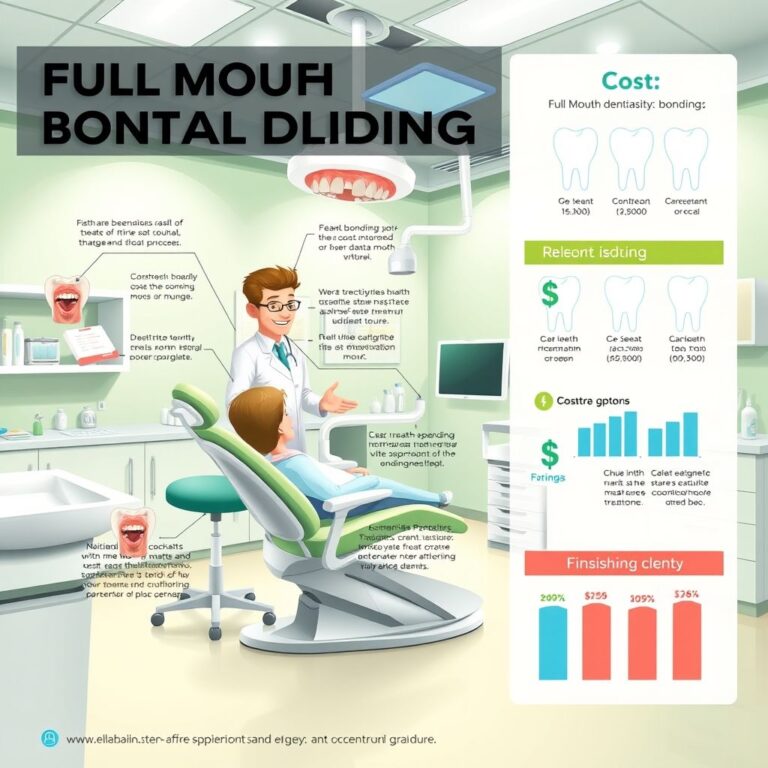Dental Bonding Cost in Montreal: A Comprehensive Guide
Dental bonding is a popular cosmetic dentistry procedure that can enhance the appearance of your teeth. Whether you’re looking to repair a chipped tooth, close gaps, or improve the overall look of your smile, dental bonding is a versatile solution. However, one of the most common concerns for individuals considering this procedure is the cost. In this comprehensive guide, we will delve into the various aspects of dental bonding cost in Montreal, providing you with all the information you need to make an informed decision.

Understanding Dental Bonding
Dental bonding involves the application of a tooth-colored resin material to the teeth. This material is hardened with a special light, which “bonds” the material to the tooth to restore or improve a person’s smile. It’s a relatively simple and affordable cosmetic procedure compared to other options like veneers or crowns.
Factors Affecting Dental Bonding Costs
Several factors influence the cost of dental bonding in Montreal, including:
- Extent of the Procedure: The number of teeth being treated and the complexity of the treatment required.
- Dentist’s Expertise: The experience and reputation of the dentist performing the procedure.
- Location: Costs can vary significantly depending on the dental clinic’s location within Montreal.
- Materials Used: The quality of the bonding materials can also impact the overall cost.
- Additional Treatments: If additional dental work is required, such as cleaning or X-rays, this will increase the total cost.
Cost Breakdown
In Montreal, the cost of dental bonding typically ranges from CAD 300 to CAD 600 per tooth. However, these prices can vary based on the factors mentioned above. Here’s a breakdown of potential costs:
| Procedure Element | Estimated Cost (CAD) |
|---|---|
| Initial Consultation | 50 – 150 |
| Dental Bonding (per tooth) | 300 – 600 |
| Follow-up Visit | 50 – 100 |
| Additional Treatments (if any) | Variable |
Detailed Analysis of Costs
- Initial Consultation: The initial consultation involves a thorough examination of your teeth and a discussion of your aesthetic goals. This step is crucial for the dentist to plan the bonding procedure effectively.
- Per Tooth Cost: The per tooth cost for dental bonding is influenced by the amount of work needed on each tooth. Minor corrections like filling small gaps or chips are less expensive than extensive reshaping.
- Follow-up Visits: Follow-up visits are essential to ensure that the bonding is holding up well and to make any necessary adjustments. These visits are typically less costly than the initial procedure.
- Additional Treatments: Sometimes, additional treatments like teeth cleaning, X-rays, or other preparatory work are required before the bonding process. These additional treatments can add to the overall cost.
Why Choose Dental Bonding?
Dental bonding offers several benefits, making it an attractive option for many patients:
- Cost-Effective: Compared to other cosmetic procedures, dental bonding is relatively inexpensive.
- Quick Procedure: Most dental bonding procedures can be completed in a single visit.
- Aesthetic Improvement: It can significantly improve the appearance of your teeth and boost your confidence.
- Non-Invasive: Unlike veneers or crowns, bonding usually requires minimal removal of the natural tooth structure.
Finding a Qualified Dentist in Montreal
Choosing the right dentist for your dental bonding procedure is crucial. Here are some tips to help you find a qualified professional in Montreal:
- Check Credentials: Ensure the dentist is licensed and has the necessary qualifications.
- Experience: Look for a dentist with extensive experience in cosmetic dentistry and dental bonding.
- Reviews and Recommendations: Read reviews and ask for recommendations from friends or family members.
- Consultations: Schedule consultations with multiple dentists to compare their expertise and costs.
Insurance and Dental Bonding
Dental bonding is often considered a cosmetic procedure and may not be covered by insurance. However, if the bonding is needed for medical reasons, such as repairing a decayed or damaged tooth, part of the cost might be covered. It’s essential to check with your insurance provider to understand what is covered under your plan.
DIY Dental Bonding Kits: A Word of Caution
There are DIY dental bonding kits available on the market, promising easy and affordable solutions. However, it is crucial to approach these kits with caution. Professional dental bonding performed by a qualified dentist ensures the best results and minimizes the risk of complications.
Maintenance and Longevity of Dental Bonding
Proper care and maintenance are essential to ensure the longevity of dental bonding. Here are some tips:
- Oral Hygiene: Maintain good oral hygiene by brushing and flossing regularly.
- Avoid Hard Foods: Avoid biting into hard foods or objects to prevent chipping the bonded material.
- Regular Dental Check-ups: Regular visits to your dentist can help monitor the condition of the bonded teeth and address any issues early.
Conclusion
Dental bonding is an excellent option for enhancing your smile without breaking the bank. By understanding the various factors that influence the cost and choosing a qualified dentist in Montreal, you can achieve the desired results. Remember to maintain good oral hygiene and follow your dentist’s advice to ensure the longevity of your dental bonding.
FAQs
- How long does dental bonding last? Dental bonding can last between 3 to 10 years, depending on the location of the bonded tooth and your oral hygiene habits.
- Is dental bonding painful? The procedure is usually painless, and anesthesia is rarely required.
- Can dental bonding be whitened? No, bonded material cannot be whitened. It’s advisable to whiten your teeth before the bonding process if you want a brighter smile.
- What are the risks associated with dental bonding? The risks are minimal, but the bonded material can chip or break if not properly cared for.
- Is dental bonding reversible? Yes, the procedure is reversible and can be adjusted or replaced as needed.
Additional Resources
Review
Before publishing, ensure you review the content carefully to fix any spelling or grammatical errors. Adding images and graphics can also help clarify the content and make it more engaging for readers.


